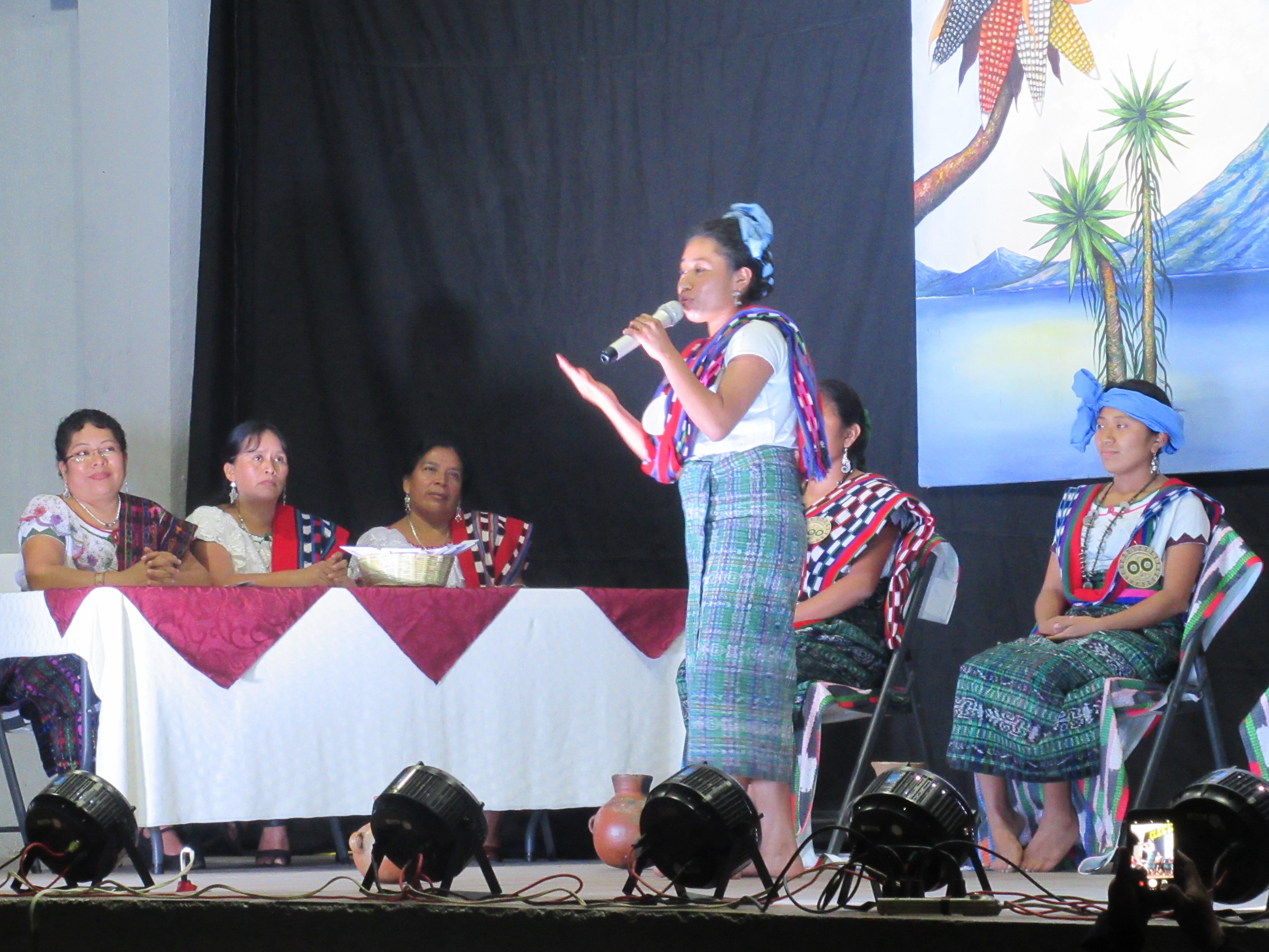In ancient history, Mayans had kings. At some stage, possibly under Spanish rule, this changed and Mayans now have queens. The queen must represent her town at a gathering of all Mayan queens, which means she must have a good grasp of local issues, national politics, Mayan culture, and be able to communicate well in both her local dialect and Spanish – the former to demonstrate knowledge of Mayan culture and the latter so she can communicate with the other queens.
I was lucky enough to be in San Pedro at the time of the election of this year’s queen. Until about ten years ago, the village council would choose a suitable girl and approach her father to ask if he would allow her to be queen for the year. The problem was finding a girl who spoke Spanish. If the father refused, the council would go to their second choice. Once a father accepted, the family would throw a huge party for all their family, friends and neighbours. My teacher recalls the many parties thrown for her older sister, who was queen for years.
Times have changed, and now the problem is finding a girl who speaks Tz’utujil, the local dialect, fluently. All children can understand it, but most don’t bother to learn the glottal stop required to properly pronounce the apostrophe, and interest in speaking Tz’utujil is flagging. With the ubiquity of television and social media, the selection of the queen has been handed to the people. Eligible girls compete for the right to be queen in a manner somewhat like a beauty pageant – without the bikinis.
In turn, the girls demonstrate their knowledge of culture by dancing their way from the rear of the arena to the stage. Their friends and family support them in the dance, sometimes using humour to capture the audience. One performance I saw was of courting at a well, and it ended with the man throwing the reluctant girl over his shoulder and carrying her onto the stage.
Once the girls have been introduced, each then gets a turn to present her case for why she’s the best candidate. Finally, the audience is invited to pose questions to the candidates. I left at this point because I had little chance of understanding the details whether in Spanish or Tz’utujil, and because it was already 10:30pm. I believe that the queen was finally elected at 1am, and she’ll be hosting a party very soon. Unfortunately, I’ll be gone before her coronation.
